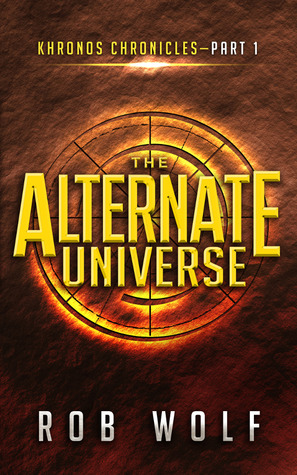Rob Wolf's Blog, page 21
June 28, 2014
Book Party!
I wasn�t sure what the point of a book party was when my friends asked me if I was having one. In fact, my writing friends didn�t just ask but insisted I should have one. �The publication of a book is worth celebrating,� said one. �A party is a great way to get the word out,� said another.
And they were both right. It was a , my friend and leader of my weekly writing workshop, urged me to practice the reading beforehand. That was an excellent idea. During my practice session, I stumbled over two spots. Had I stumbled over those spots before a live audience, I would have blushed, started sweating profusely, and begun to read super fast and probably stumbled more.
And they were both right. It was a , my friend and leader of my weekly writing workshop, urged me to practice the reading beforehand. That was an excellent idea. During my practice session, I stumbled over two spots. Had I stumbled over those spots before a live audience, I would have blushed, started sweating profusely, and begun to read super fast and probably stumbled more.
Published on June 28, 2014 21:00
June 18, 2014
Attack of the Lawyers from Outer Space
One of the things I enjoyed most about science fiction as a kid was its optimism. Sure, there were dystopic visions of nuclear holocaust and intergalactic empires at war, but there were also tales of utopian societies where people lived sustainably and in peace (the collectivist society of Anarres in Ursula K. Le Guin�s The Dispossessed
 comes to mind.)
comes to mind.)The reassuring message of utopian sci-fi is that, �Sure, humans screwed up Earth, but when they finally figure out how to travel through space, they�ll also figure out how to live in harmony.� That message was reflected in the multi-ethnic, multi-species crew of the Starship Enterprise, whose members enjoyed a collegiality (unless one of them was overcome by some demonic alien influence or replaced by an evil twin from an alternate universe) that many hoped would eventually emerge from the civil rights struggles and anti-war protests of the 1960s.
Well, this article in The Economist makes me think we�re no closer to solving our problems even as the prospect of space colonization seems ever more tangible.
The article notes that in a Star Trek-like moment of international harmony, space-faring nations in 1967 devised the United Nations Outer Space Treaty to declare that no nation can claim sovereignty over the moon. A hundred and two nations have signed on.
But now �space law scholars� (the next best thing to being an astronaut if weightlessness makes you nauseous) are debating whether the treaty still allows for private (as opposed to national ownership) of celestial satellites. It figures, of course, the debate is being fueled in part by a billionaire, who �wants to establish private property rights on the Moon in a bid to tackle Chinese lunar dominance. He believes �the final nail in America�s 21st century coffin is likely to be China�s takeover of the Moon.��
I can�t help but think of the Native Americans, who knew nothing of property rights, watching the Europeans steal their land, chop it into lots, and transform it from a shared inheritance to a private commodity.
Once someone owns a chunk of the Moon, it�s easy to imagine someone suing if they trip over a carelessly placed Moon rock or someone getting arrested for trespassing (�Private Crater: Keep Out�.) From there, it�s not too hard to imagine more serious crime, more serious lawsuits, more serious conflicts eventually leading to interstellar wars.
The only good thing, I suppose, is that there will still be a need for books like The Dispossessed, imagining utopian worlds that will still seem just around the corner and yet perhaps forever out of reach.
Published on June 18, 2014 21:00
June 13, 2014
This is a Dad's Brain on Parenting
There are as many types of fathers as there are people. The Khronos Chronicles

features a father who is intellectually brilliant but largely blind to his son's emotional needs, not to mention blind to the potential consequences of his brilliant invention.
Some people don't think fathers are capable of being fully emotionally present in their children's lives, at least when compared to the paradigmatic mother. That was definitely the sense I got 16 years ago when our son was a newborn; quite a few people seemed to express either doubt or wonder at Dru's and my capacity to be effective nurturers.
But now there's research to prove that moms and dads are made of the same stuff, according to an article on www.LiveScience.com by Bahar Gholipour. "Taking care of a child reshapes a dad's brain, causing it to show the same patterns of cognitive and emotional engagement that are seen in moms," she writes. This pretty much confirms what I've known viscerally as a (gay) dad, but it's nice to see it confirmed.
Click here for the full article (which had a bunch of other interesting dad-related research).
Published on June 13, 2014 21:00
June 12, 2014
See the Asteroid. See the Asteroid Spin
The NASA Jet Propulsion Laboratory released a video of asteroid 2014 HQ124--what had been dubbed "the Beast" by some when it was discovered in April because it was a) expected to fly close to Earth and b) big enough to destroy a nice chunk of civilization if it struck. As it turned out, the asteroid flew by on Sunday at a distance of 776,000 miles�that funny sound you might have heard was a collective "phew" being uttered in many languages.
What's cool about the images is that they're "among the best radar images of a near-Earth asteroid ever obtained," NASA says. In some ways, the video looks crude, but that's because computer graphic animation has created picture-perfect images in our collective imaginations of what objects in outer space are supposed to look like. It's humbling to be reminded that we really don't know much about the universe, visually speaking, which means science fiction writers still have plenty of room to maneuver.
Published on June 12, 2014 21:00
June 11, 2014
An Impassioned Defense of Amazon
An impassioned defense of Amazon from author Frank Schaeffer caught my eye this morning. He calls the folks at Amazon "liberators." I love it.
Here's an excerpt:
"My liberators at Amazon have freed me to write for you directly and to say what I want to say to anyone I want to say it to. The Internet and its innovators are doing more to facilitate the reemergence of content-laden, craft-rich, hands-on art, individuality and perhaps even spirituality, than all the galleries, agents, critics, churches and publishers combined.
As e-books have moved into center stage, all my traditional publishers overpriced them, doing everything they could to hang on to print in a digital age. And like some old boys' club, agents and even reviewers played the game of lamenting the old days when "upstarts" like the big book chains came along, displacing the smaller bookstores, to be displaced themselves by Amazon."
Check out the complete Huffington Post article here.
Published on June 11, 2014 21:00
June 8, 2014
Enter a Goodreads Book Giveaway for a Chance to Win a Free Copy of The Alternate Universe
I'm offering 25 free copies of The Alternate Universe through a Goodreads Book Giveaway! Click below to enter the drawing.
.goodreadsGiveawayWidget { color: #555; font-family: georgia, serif; font-weight: normal; text-align: left; font-size: 14px;
font-style: normal; background: white; }
.goodreadsGiveawayWidget img { padding: 0 !important; margin: 0 !important; }
.goodreadsGiveawayWidget a { padding: 0 !important; margin: 0; color: #660; text-decoration: none; }
.goodreadsGiveawayWidget a:visted { color: #660; text-decoration: none; }
.goodreadsGiveawayWidget a:hover { color: #660; text-decoration: underline !important; }
.goodreadsGiveawayWidget p { margin: 0 0 .5em !important; padding: 0; }
.goodreadsGiveawayWidgetEnterLink { display: block; width: 150px; margin: 10px auto 0 !important; padding: 0px 5px !important;
text-align: center; line-height: 1.8em; color: #222; font-size: 14px; font-weight: bold;
border: 1px solid #6A6454; border-radius: 5px; font-family:arial,verdana,helvetica,sans-serif;
background-image:url(https://www.goodreads.com/images/layo... background-repeat: repeat-x; background-color:#BBB596;
outline: 0; white-space: nowrap;
}
.goodreadsGiveawayWidgetEnterLink:hover { background-image:url(https://www.goodreads.com/images/layo...
color: black; text-decoration: none; cursor: pointer;
}
Goodreads Book Giveaway

The Alternate Universe
by Rob Wolf
Giveaway ends July 08, 2014.
See the giveaway details
at Goodreads.
Enter to win
Published on June 08, 2014 21:00
June 7, 2014
Is There a Best Practice for How Often to Check (or Not Check) Your Amazon Ranking?
As a newbie to indie publishing, I find it tempting to keep checking how many "units" of my book (as Kindle Direct Publishing calls an e-book purchase) have sold, but I'm trying to avoid doing this more than a few times a day. There are two main, probably obvious, reasons for trying to keep my sales-watching to a minimum:
1) Checking can become addictive, and like any addiction, it will leave me feeling dissatisfied and empty.
2) The time I spend checking could be invested in something more productive, like: actively marketing my books, writing a new book, exercise, spending time with friends and family--the list goes on and on.
On the other hand, checking at least once in a while has a purpose: to see which marketing techniques contribute to an uptick in sales.
Published on June 07, 2014 21:00
June 5, 2014
Why I Don't Feel Sorry for Hachette
It�s not in my nature to come out in favor of a market-gobbling conglomerate, but in the very public battle between Amazon and the lesser conglomerate Hachette, I�m taking Amazon�s side.
At least for today.
Many have portrayed the fight, which reportedly has to do with how much Amazon can charge for e-books (both sides are mum on the details), as an effort by Amazon to destroy traditional publishing. According to that narrative, by destroying (or harming) traditional publishing, Amazon is silencing not just Hachette but the (sometimes poor and struggling) writers that Hachette publishes.
Of course, Hachette publishes many wonderful, talented, amazing (rich and successful) writers, all of who deserve to have their works for sale in the marketplace. And let�s face it I don�t think anyone thinks Amazon is actually attempting to destroy writers� chances of being published. After all, Amazon makes a lot of money selling books; destroying writers� careers and the marketplace for books would be counterproductive.
I saw one writer post on Facebook, that �Amazon's bullying tactics� affect not just big names like Malcolm Gladwell
 and James Patterson
and James Patterson but �ordinary writers too, small time writers, first-time writers��in fact, �all writers.�
but �ordinary writers too, small time writers, first-time writers��in fact, �all writers.� This is where I beg to differ. It seems to be that Amazon�s strategy doesn�t affect those writers who have tried again and again, sending out hundreds of queries, to find a literary agent to represent them to no avail. Nor does it affect those briefly lucky writers who have signed with an agent, but whose books, despite diligent effort on their agents� parts, never get published.
The truth is that Hachette and the other Big Five publishers aren�t willing to take a chance on most writers, especially those representing off-beat or minority voices. Smaller publishers are more likely to take risks, but they lack the marketing power to reach a broad audience. As far as I can see, only one company, with the power to produce bestsellers in a flash, has taken an open mind to the new writer, �the small time writer, first time writer� and that company is Amazon.
Published on June 05, 2014 21:00



